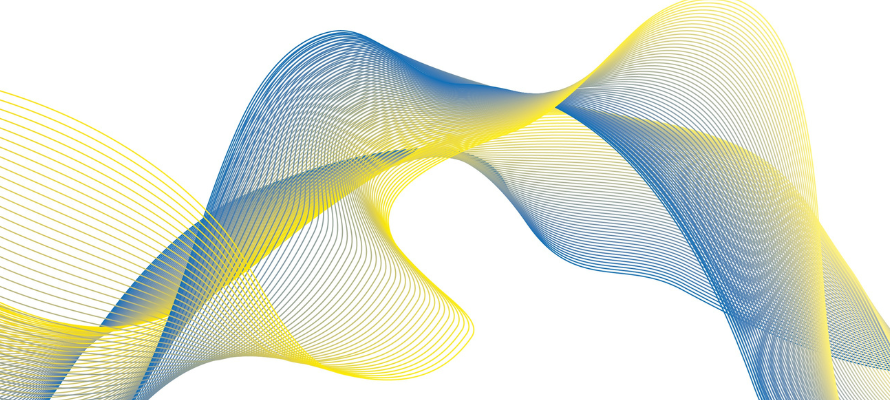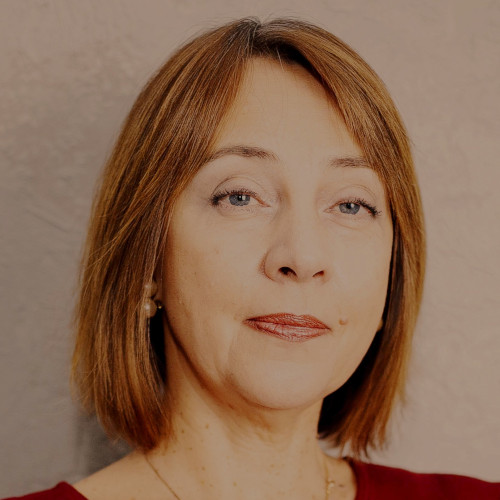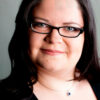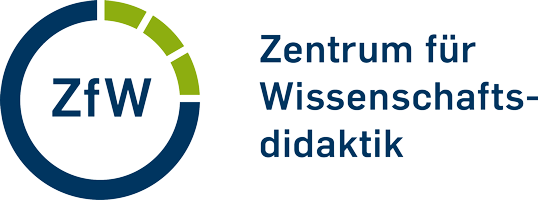
How it all began

JD: Tetiana, you came to ZfW at a very challenging time for Ukraine. What was your work at RUB all about?
 TK: Firstly, I performed the research “Test tasks with visual information for the computer-based assessment of the skills of medical students”. The project centered on the question of how medical teaching (and examinations in particular) can be supported by more multimedia-based, visual approaches. The guiding principle is the idea that a move away from strongly text-based forms of learning and examinations strengthens competence-orientated training within the framework of medical studies.
TK: Firstly, I performed the research “Test tasks with visual information for the computer-based assessment of the skills of medical students”. The project centered on the question of how medical teaching (and examinations in particular) can be supported by more multimedia-based, visual approaches. The guiding principle is the idea that a move away from strongly text-based forms of learning and examinations strengthens competence-orientated training within the framework of medical studies.JD: So you worked on transforming text-based examination forms in medical studies into a more modern, didactically more up-to-date and technically supported form?
 TK: Yes. In modern medical education, learning outcomes are formulated via competencies, where practical skills are integral components. The perception and analysis of visual information are essential as medical skills. Assessment of the development of such skills requires appropriate methods. In many countries, the predominant assessing tool for medical students is the multiple-choice questions. Paper-based tests cannot reproduce sufficient quality medical images for assessing skills in visual data analysis skills. However, advances in digital technology allow the integration of scientific pictures into a computerized test. Thus, the research aimed to study the effect of visual data on test performance to introduce this kind of test task into assessment procedures. This research resulted in a scientific article that is under the publication process.
TK: Yes. In modern medical education, learning outcomes are formulated via competencies, where practical skills are integral components. The perception and analysis of visual information are essential as medical skills. Assessment of the development of such skills requires appropriate methods. In many countries, the predominant assessing tool for medical students is the multiple-choice questions. Paper-based tests cannot reproduce sufficient quality medical images for assessing skills in visual data analysis skills. However, advances in digital technology allow the integration of scientific pictures into a computerized test. Thus, the research aimed to study the effect of visual data on test performance to introduce this kind of test task into assessment procedures. This research resulted in a scientific article that is under the publication process.JD: At many Ukrainian universities, studying and teaching cannot currently take place as usual - because the buildings and important infrastructure such as laboratories have been destroyed or damaged, because teachers and students are on the front line or have had to flee. In order for teaching to continue, support with the use of infrastructure and online teaching is essential. You worked on that too, right?
 TK: Yes, I did. In the second part of my scholarship, I was involved in the project DigiLabStar II. My duties were didactic conceptualization and methodological support to ensure that developed interactive learning materials meet the requirements of the competence-based Educational Standards of Ukraine. I applied the theoretical and empirical findings of my research (see above) creating more than 400 assessment tasks in eight interactive formats for 12 learning topics. Development, translation, and editing of lecture presentations, and writing scripts for voicing are also my contributions to the project DigiLabStar II.
TK: Yes, I did. In the second part of my scholarship, I was involved in the project DigiLabStar II. My duties were didactic conceptualization and methodological support to ensure that developed interactive learning materials meet the requirements of the competence-based Educational Standards of Ukraine. I applied the theoretical and empirical findings of my research (see above) creating more than 400 assessment tasks in eight interactive formats for 12 learning topics. Development, translation, and editing of lecture presentations, and writing scripts for voicing are also my contributions to the project DigiLabStar II.JD: An eventful and busy time for you here at RUB came to an end. Was there a particular situation here that you will remember fondly of? What do you take with you?
 TK: I cannot express all my gratitude to the team of the Center of Teaching and Learning which hosted and fully supported me for almost 1,5 years. There are so many people I want to mention:
TK: I cannot express all my gratitude to the team of the Center of Teaching and Learning which hosted and fully supported me for almost 1,5 years. There are so many people I want to mention:
Dr. Peter Salden did everything to make me feel at home. I sincerely thank him for investing his time and expertise in my projects. I am infinitely grateful to Dr. Stephanie Heimgartner who was not only my supervisor but my kind angel.
I want to thank Dr. Astrid Tan for changing my attitude to virtual mobility, Sabine Römer for opening a new horizon of eLearning with H5P, Ralf Otto for solving all computer-related problems, Kathrin Braungardt for helping with Moodle, Nadine Lordick for sharing working space and positive atmosphere, Alina Hoffman for managing my office life, Iryna Kompanets for tight and pleasant working together over DigiLabStar II project, all ZfW colleagues for having been with you.
My particular thanks to the vice-rector on academic affairs, Prof. Kornelia Freitag for her empathy and the opportunity of a long-term research stay at RUB.
And I would like to thank the Welcome Center for the invaluable aid in numerous issues of living in Germany.
JD: That’s wonderful to hear. We also enjoyed having you here! Now a new phase is about to begin. You have been awarded a follow-up scholarship in Finland. What will you be doing in Finland and what are you particularly looking forward to?
 TK: I will work for the University of Jyväskylä in the middle of Finland, which is located about 270 kilometers in the north of Helsinki. I received a new grant only because of the advanced competencies in scientific communication and eLearning that I have acquired at ZfW. The Research Council of Finland provides this grant. The research project will be performed at the University of Jyväskylä’s subdivision - the Finnish Institute for Educational Research.
TK: I will work for the University of Jyväskylä in the middle of Finland, which is located about 270 kilometers in the north of Helsinki. I received a new grant only because of the advanced competencies in scientific communication and eLearning that I have acquired at ZfW. The Research Council of Finland provides this grant. The research project will be performed at the University of Jyväskylä’s subdivision - the Finnish Institute for Educational Research.
I will conduct the pedagogical study "Algorithmizing of multiple-choice questions development in higher education". In recent years, my main scientific interest has been revealing and transforming the logical structure of educational content in connection with learners’ thinking algorithms. My project in Finland focuses on practical aspects of creation assessment tasks based on structural-logical text analyses with the help of AI.
I suppose to implement the research outputs in the universities of Ukraine and Finland, and possibly in RUB. I hope for further communication with ZfW in the sphere of pedagogical research and development and not only. I very much hope that there will be peace when I return home.
JD: Tetiana, thank you so much for this interview and the many exciting insights into your work. It was a pleasure to have had you with us. We wish you all the best for your future endeavours and hope as well for a peaceful future!
 TK: Thank you, ZfW! Thank you, RUB! Thank you, Bochum!
TK: Thank you, ZfW! Thank you, RUB! Thank you, Bochum!Read more about our Ukraine-Projects
Neuigkeiten aus dem ZfW per E-Mail erhalten



